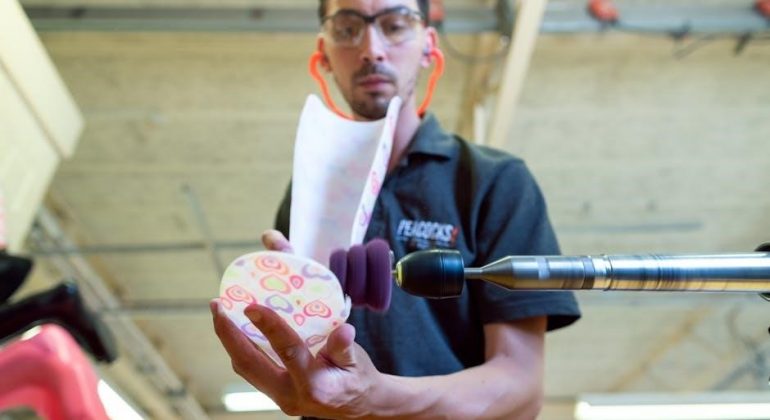The art of manufacturing combines creativity, technology, and precision to produce high-quality products․ Explore its evolution, modern practices, and download free resources for deeper insights into this dynamic field․
Overview of the Art of Manufacturing Concept
The art of manufacturing integrates innovative techniques, automation, and sustainable practices to enhance production efficiency․ It emphasizes lean methodologies, reducing waste, and optimizing processes․ This concept, promoted by industry leaders like Mitsubishi Electric and Keith Welters, encourages a shift from traditional methods to smart manufacturing․ By leveraging technologies such as AI, robotics, and edge computing, manufacturers can achieve higher quality and flexibility․ The art of manufacturing also focuses on eco-friendly production, ensuring environmental sustainability while meeting customer demands․ It bridges theory and practical applications, inspiring the next generation of manufacturers․
Importance of Manufacturing in Modern Industry
Manufacturing is the backbone of modern industry, driving economic growth and innovation․ It creates jobs, fosters technological advancement, and meets global demand for goods․ By adopting automation, AI, and sustainable practices, manufacturers enhance efficiency and reduce costs․ The art of manufacturing ensures high-quality production while addressing environmental concerns․ It plays a vital role in shaping infrastructure and enabling industries to adapt to evolving market needs․ Downloading resources like “The Art of Manufacturing PDF” offers insights into optimizing production processes and embracing future trends․

Evolution of Manufacturing Practices
Manufacturing has evolved from traditional methods to smart practices, integrating robots and digital tools for efficiency․ Download resources like “The Art of Manufacturing PDF” for insights into this transformation․
From Traditional Methods to Smart Manufacturing
Manufacturing has transitioned from labor-intensive, manual processes to advanced, technology-driven systems․ Traditional methods relied on basic machinery, while modern practices leverage automation, AI, and IoT․ Smart manufacturing integrates data analytics, enabling real-time decision-making․ Tools like Edge computing and cloud solutions enhance efficiency․ This evolution reduces waste, improves quality, and supports mass customization․ Download resources like The Art of Manufacturing PDF to explore how these innovations are reshaping the industry, offering insights into predictive maintenance and sustainable production strategies․ These advancements ensure manufacturers remain competitive in a rapidly changing global market․
Role of Automation and AI in Modern Manufacturing
Automation and AI are revolutionizing manufacturing, enhancing efficiency and precision․ These technologies enable predictive maintenance, reducing downtime and improving product quality․ AI-driven analytics optimize production processes, while automation streamlines tasks, from assembly to quality control․ By integrating Edge computing and cloud-based solutions, manufacturers achieve real-time monitoring and data-driven decision-making․ This transformation fosters innovation, scalability, and adaptability․ Download The Art of Manufacturing PDF to explore how automation and AI are driving the future of the industry, ensuring sustainable and competitive production practices․

Key Principles of Lean Manufacturing
Lean manufacturing focuses on eliminating waste, optimizing processes, and enhancing value for customers․ It emphasizes continuous improvement and efficient resource utilization, ensuring sustainable and high-quality production․ Download the PDF to explore its core principles and practical applications in modern industries․
Eliminating Waste and Optimizing Processes
Lean manufacturing emphasizes the elimination of non-value-adding activities to enhance efficiency․ By identifying and reducing waste, such as excess inventory or overproduction, manufacturers can streamline workflows․ Optimizing processes involves improving operational effectiveness and ensuring resources are used wisely․ This approach aligns with the Toyota Production System, fostering a culture of continuous improvement․ Download the PDF to learn how to implement these strategies effectively and achieve sustainable, high-quality production in your manufacturing operations․
Toyota Production System (TPS) and Its Impact
The Toyota Production System (TPS) revolutionized manufacturing by focusing on eliminating waste and maximizing value-added activities․ Developed by Taiichi Ohno and Shigeo Shingo, TPS introduced principles like Just-in-Time (JIT) production and continuous improvement (Kaizen)․ Its impact extends globally, influencing modern lean manufacturing practices․ TPS emphasizes standardized workflows, defect prevention, and empowering workers․ Download the PDF to explore how TPS has shaped efficient, high-quality production systems worldwide, driving operational excellence and sustainability in industries․

Mass Customization in Manufacturing
Mass customization enables producing tailored products efficiently, combining modular production and flexible systems․ Robotics and automation drive this approach, aligning with Toyota Production System (TPS) principles for efficiency․ Download the PDF to explore how mass customization integrates with modern manufacturing techniques, enhancing customer satisfaction while maintaining production efficiency and quality standards globally․
Meeting Individual Customer Demands
Mass customization in manufacturing allows businesses to tailor products to individual preferences without compromising efficiency․ By integrating automation, modular production, and real-time data, companies can deliver personalized solutions․ Advanced technologies like 2D barcodes and robotic assembly lines enable precise customization while maintaining production speed․ This approach reduces costs and enhances customer satisfaction․ Download the PDF to learn how manufacturers are leveraging these tools to meet diverse customer needs effectively and sustainably․
2D Barcodes and Assembly Line Innovations
2D barcodes revolutionize assembly lines by enabling precise part identification and tracking․ These innovations enhance traceability, reduce errors, and streamline production processes․ Integration with robotic systems and automation tools allows for seamless customization and quality control․ Manufacturers leveraging these technologies achieve higher efficiency and agility in meeting customer demands․ Discover how 2D barcodes are transforming modern manufacturing by downloading the free PDF guide and exploring cutting-edge applications in production workflows․
Sustainable Manufacturing Practices
Emphasizing eco-friendly production, sustainable practices minimize environmental impact through efficient resource use and waste reduction․ Discover green strategies and case studies by downloading the free PDF guide․
Environmental Impact and Green Production
Sustainable manufacturing focuses on minimizing environmental impact through eco-friendly practices․ By adopting green technologies, manufacturers reduce emissions, conserve resources, and promote recyclability․ Download the free PDF guide to explore strategies for lowering carbon footprints and implementing energy-efficient processes․ Green production ensures long-term environmental health while maintaining productivity and quality․ Discover how innovative approaches are transforming industries worldwide, prioritizing sustainability without compromising performance․
Case Studies in Eco-Friendly Manufacturing
Discover how leading manufacturers are pioneering green production․ Mitsubishi Electric reduced energy consumption by 28,400kWh annually through LED upgrades․ Nissan’s sustainable initiatives in vehicle production highlight eco-friendly material sourcing․ These case studies, available in the free PDF guide, demonstrate innovative approaches to minimizing waste and emissions․ Learn how these companies achieved environmental goals without compromising efficiency, setting benchmarks for sustainable manufacturing globally․

Future Trends in Manufacturing
Emerging technologies like edge computing and cloud-based solutions are reshaping manufacturing․ Download the free PDF guide to explore how these innovations drive efficiency and smarter decision-making․
Edge Computing and Cloud-Based Solutions
Edge computing and cloud-based solutions are revolutionizing manufacturing by enabling real-time data processing and enhanced decision-making․ These technologies integrate seamlessly with smart factories, optimizing production workflows and reducing latency․ Cloud-based platforms provide scalable storage and analytics, while edge computing ensures faster data processing at the source․ Together, they empower manufacturers to adopt predictive maintenance, improve quality control, and achieve greater operational efficiency․ Download the free guide to explore how these innovations are transforming the industry․
Preparing for the Next Generation of Manufacturers
Preparing the next generation of manufacturers requires fostering a strong foundation in STEM education and hands-on experience․ Encouraging young talent to explore manufacturing careers is crucial․ Programs like “The Art of Manufacturing” inspire over 5,000 youngsters annually, showcasing the industry’s potential․ Educators and industry leaders must collaborate to provide training in advanced technologies like automation and AI․ Download the free guide to discover how to equip future manufacturers with the skills needed for modern production environments․
The art of manufacturing is a dynamic field blending innovation and efficiency․ Download the free guide to explore its evolution and future trends in detail․
Summarizing the Art of Manufacturing
The art of manufacturing blends traditional craftsmanship with modern technologies like automation and AI․ It emphasizes lean principles, mass customization, and sustainable practices to enhance efficiency and customer satisfaction․ Mitsubishi Electric’s journal and resources like the free PDF guide provide insights into these concepts, offering practical applications for manufacturers․ By adopting smart factories and innovative tools, manufacturers can reduce costs and improve product quality, ensuring a competitive edge in a rapidly evolving industry․
Call to Action for Aspiring Manufacturers
Start your journey in manufacturing by exploring resources like the Art of Manufacturing PDF․ Dive into practical insights, cutting-edge technologies, and sustainable practices․ With tools like automation and AI, you can innovate and excel in this dynamic field․ Join the community of forward-thinking manufacturers and download the guide today to unlock your potential in shaping the future of production․
